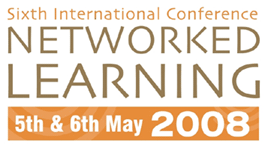

Social Networking for Social Justice: Challenges and Possibilities
Charalambos Vrasidas
CARDET - University of Nicosia, pambos@cardet.org
Abstract
In the recent years there has been an increased interest in social justice. Issues such as human rights, poverty eradication, freedom of speech, and equality are prevailing discourses among international organizations, scholars, governments, and activists. According to UN reports, we live longer than ever; yet, life expectancy statistics show major discrepancies around the globe. Poverty, famine, diseases, and climate change are causing irreparable harm across the developing world. Although discussions around the use of Information Communication Technologies (ICTs) for education and development reflect mixed sentiments among supporters and critics, I will argue that if critically and systemically approached, ICTs and networked learning environments can promote development and social justice.
I will discuss mobile technologies, Web 2.0 tools, online games, social networking software, and networked learning environments and examine how they have gradually been integrated into our daily lives. These technologies have multiple dimensions including seamless integration in everyday activity, space and time independency, and offer unlimited interaction opportunities to millions of people around the world. These dimensions can provide a model which allows access to education and social services for the marginalized, in a scale that was not available before.
I will present findings from a collective effort of several scholars and I will argue that a critical view of technology is required if we are to leverage the affordances of networked technologies for promoting education, development, and social justice. Our research suggests that all stakeholders engaged in shaping the multiple ways in which ICTs can support development, should be involved in the planning, implementation, and evaluation of programs. The "information society" rhetoric focuses on wide scale implementation of ICTs without questioning fundamental assumptions which might be exclusionary and unjust for the disadvantaged.
Meaningful access and use of ICTs and networked learning is embedded
within complex sociopolitical, cultural, and economic contexts. The problems
faced by developing countries (e.g. poverty, famine, war, health issues)
are multidimensional; and as such they need to be addressed systemically
and systematically. Regardless of physical access, the ICTs environment
can be "exclusionary" to large groups of people. I will attempt
to unpack the assumptions embedded in the ICT rhetoric and propose alternative
ways of articulating the relationship between ICT and development. Examples
and case studies of the use of a variety of ICTs will be presented from
around the world. Issues to be discussed include the use of networked
learning environments, mobile technologies, online games, social networking
software, and blended pedagogical approaches, which collectively provide
a means for conceiving the ways in which all these tools can be empowering
and inclusionary for the underprivileged.
| About NLC |
2008 Conference Papers
| Conference Committee| Keynote
Speakers
| Papers from previous NL conferences |Research Seminars| Current Conference
| Sponsors | Contact
|
